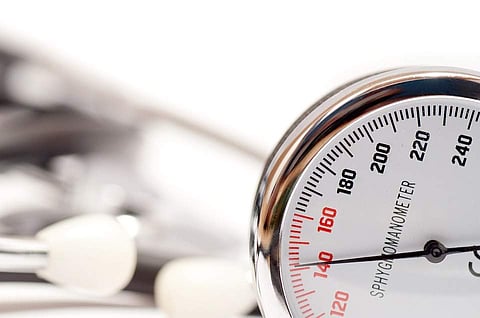

The COVID-induced lockdown and social isolation is associated with an increase in high blood pressure (BP) among patients admitted to an emergency, researchers have found.
According to the study, admission to the emergency department during the mandatory social isolation period was linked with a 37 per cent increase in the odds of having high blood pressure - even after taking into account age, gender, month, day, and time of consultation.
"After social isolation began, we observed that more patients coming to the emergency had high blood pressure. We conducted this study to confirm or reject this impression," said study author Matias Fosco of Favaloro Foundation University Hospital in Argentina.
The frequency of high blood pressure among patients aged 21 and above during the three-month social isolation (20 March to 25 June 2020) was compared to two previous time periods: the same three months in 2019 and the three months immediately before social isolation (13 December 2019 to 19 March 2020).
Blood pressure is a standard measurement on admission to the emergency department and almost every patient (98.2 per cent) admitted between 21 March 2019 and 25 June 2020 was included in the study.
The most common reasons for admission were chest pain, shortness of breath, dizziness, abdominal pain, fever, cough, and hypertension.
The study included 12,241 patients. The average age was 57 years and 45.6 per cent were women During the social isolation period, 23.8 per cent of patients admitted to the emergency had high blood pressure.
This proportion was significantly higher compared to the same period in 2019, when it was 17.5 percent, and compared to the three months before social isolation when it was 15.4 percent.
"There are several possible reasons for the connection between social isolation and high blood pressure," Fosco said. For example, increased stress because of the pandemic, with limited personal contact and the onset or exacerbation of financial or family difficulties.
"Changed behaviours may have played a role, with higher intake of food and alcohol, sedentary lifestyles and weight gain," Fosco added.
The researchers noted that blood pressure control helps prevent heart attacks and strokes and serious illness from Covid-19, so it's essential to maintain healthy lifestyle habits, even under social isolation and lockdown conditions.
The study was scheduled to be presented at the 46th Argentine Congress of Cardiology (SAC) from 19 to 21 November.
